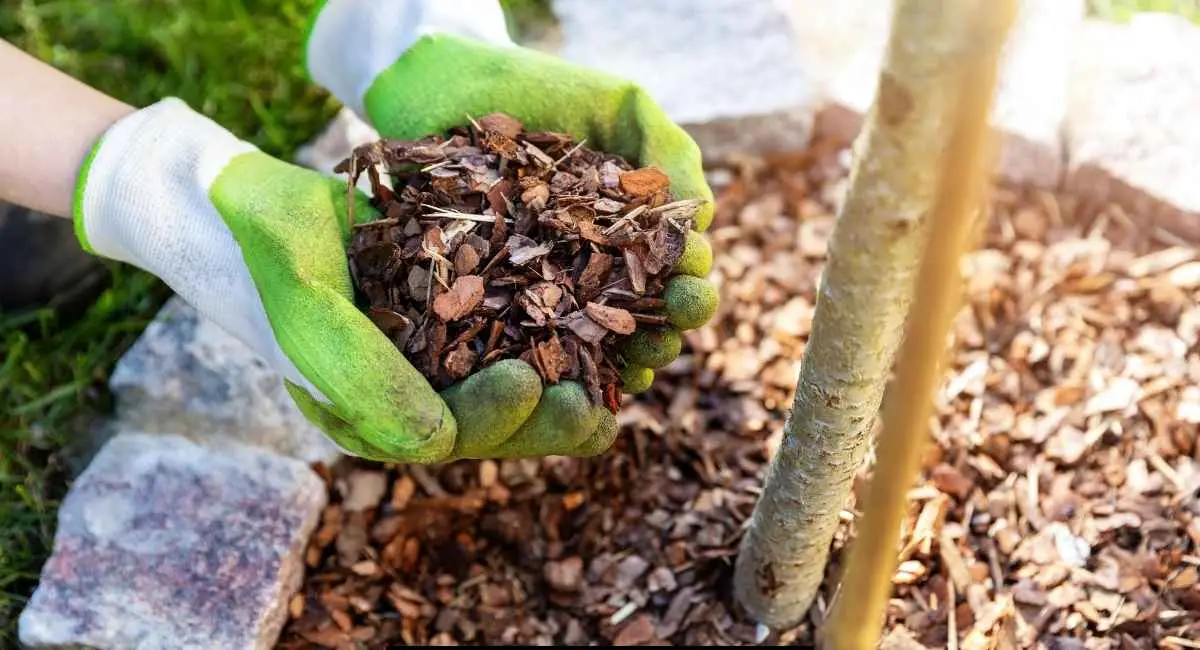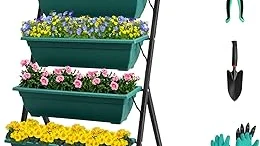Mulch is an essential part of any healthy garden or landscape. It conserves moisture, suppresses weeds, and improves soil health. However, one of the most common problems gardeners face is mulch washing away after a heavy rain or watering. Not only does this disrupt the look of your garden, but it can also expose the soil, leading to erosion and the loss of valuable nutrients.
This guide explores practical solutions for preventing mulch from washing away and ensuring your garden stays beautiful, healthy, and well-protected year-round. Whether you’re a seasoned gardener or a beginner, this article provides expert advice backed by reliable sources and proven methods.
Why Does Mulch Wash Away?
Before diving into how to prevent mulch from washing away, it’s essential to understand why it happens in the first place. There are a few common causes:
- Heavy Rain: When it rains heavily, water can quickly move mulch, especially if it’s light and loose.
- Wind: Strong winds can lift lighter mulches like straw or wood chips.
- Improper Mulching Techniques: Using a layer that is too thin or misusing mulch can lead to quicker displacement.
- Watering Patterns: Overhead watering can cause the mulch to shift and wash off if improperly applied.
Understanding these causes will help you take the necessary steps to avoid the common mistakes that lead to mulch loss.
Tip #1: Choose the Right Type of Mulch
Not all mulches are created equal. Some types of mulch are more prone to washing away than others. Here are some options:
- Wood Chips or Bark Mulch: Heavy, chunky mulches like wood chips or bark are less likely to wash away than lighter options like straw or shredded leaves.
- Rubber Mulch: Made from recycled tires, rubber mulch is heavier and won’t wash away as quickly. It also helps with water retention and weed control.
- Cedar Mulch: This type is heavier and naturally resists decomposition, making it a long-lasting option for garden beds.
While organic mulches like straw or grass clippings are excellent for soil health, they tend to be light and can wash away more quickly. It might be wise to stick with heavier mulches if you live in an area with frequent rainstorms or wind.
Tip #2: Apply Mulch Correctly
Correct application is one of the most important factors preventing mulch from washing away. Here’s how to do it:
- Layer Thickness: Apply a layer of mulch about 2-4 inches thick. This is thick enough to stay in place but not so thick that it suffocates plant roots.
- Avoid Piling Mulch Against Plant Stems: Mulch should be spread evenly around plants, leaving a small gap around the stems to prevent rot. Piling mulch directly against plant stems can create a barrier for moisture and air, leading to plant health issues.
- Edge Reinforcement: The mulch is more likely to wash away if your garden beds are located on a slope. Use landscape edging, stones, or wood to contain the mulch and prevent it from spilling.
- Water After Mulching: Once you’ve applied mulch, water the area gently to help settle it into place. This also ensures that the mulch is adequately compacted, making it more challenging to move with water.
Tip #3: Create a Barrier
If you’re dealing with heavy rainfall or water runoff, creating a barrier around your garden can help reduce mulch loss. Some options include:
- Landscape Fabric: Lay a layer of landscape fabric beneath the mulch. This prevents the mulch from mixing with the soil while allowing water to pass through. Be sure to cut slits in the fabric for your plants to grow through.
- Edging Materials: Use metal, plastic, or stone edging around your garden beds to keep mulch in place, especially if you have a sloped landscape.
- Stone or Gravel Borders: Consider using rocks or gravel along the edges of your mulch beds. Not only will this add aesthetic value, but it can also create a physical barrier that prevents mulch from washing away.
Tip #4: Apply Mulch When Soil is Dry
Mulch applied to wet soil can be more easily displaced by rainfall and may also not adhere. For the best results, apply mulch when the soil is dry. This allows the mulch to lock into the soil more effectively, creating a firmer foundation that resists being washed away.
Tip #5: Maintain Your Mulch Regularly
Mulch, especially organic types like bark, wood chips, or leaves, can break down over time. If left unchecked, it can become less effective at protecting your garden and more prone to washing away. Regularly check your mulch, especially after heavy rains, and replenish it as needed.
If the mulch is thinning or has been displaced, a quick touch-up can help keep your garden protected. For example, topping off thin spots with fresh mulch can help restore its protective benefits and prevent further erosion.
Tip #6: Install a Drainage System
In areas with frequent or intense rainfall, improving drainage is key to reducing mulch loss. Consider installing a simple drainage system, like French drains or gravel paths, to divert excess water from your garden beds. Managing water flow reduces the risk of soil erosion and mulch washout.
- French Drains are trenches filled with gravel and a perforated pipe designed to move excess water away from garden beds.
- Rain Gardens: If your yard floods, creating a rain garden can help absorb and slow the water flow, preventing mulch from washing away.
Tip #7: Use a Mulch Locking Agent
Suppose you’re dealing with a particularly challenging environment, such as areas with strong winds or heavy rains. In that case, you should invest in a mulch-locking agent. These products are sprayed onto the surface of the mulch to help bind the pieces together, making it more resistant to displacement.
Mulch binders are an excellent choice for those who want an added layer of protection, especially in climates with extreme weather conditions.
FAQs About Preventing Mulch from Washing Away
Q: Can I use grass clippings as mulch without worrying about them washing away?
A: Grass clippings are light and may wash away more quickly than other types of mulch. To minimize this, apply a thin layer (about 1 inch) and combine it with heavier materials like wood chips. Be mindful of grass clippings clumping together, as they can form a solid mat that impedes water penetration.
Q: How often should I replace my mulch?
A: Organic mulches like wood chips or bark decompose over time and should be replenished every year or two, depending on how fast they break down. Keep an eye on the mulch depth and replace it when necessary to maintain its benefits.
Q: Can I prevent mulch from washing away by using plastic sheeting?
A: Plastic sheeting can keep moisture in, but it can also suffocate your plants. Instead, use breathable landscape fabric that helps with water drainage.
Q: How can I stop mulch from blowing away?
A: If you’re dealing with windy conditions, use heavier mulches like shredded bark or rubber mulch. Additionally, you can reinforce the edges with stones or a border to keep the mulch contained.
Conclusion
Preventing mulch from washing away is a simple but vital task for maintaining a healthy garden. By selecting the correct type of mulch, applying it correctly, creating barriers, and performing regular maintenance, you can ensure your mulch stays in place and continues to protect your soil. Whether you live in an area with heavy rainfall or frequent wind, these tips will help keep your garden looking its best while promoting long-term soil health.
Ready to take your garden to the next level? Implement these strategies today to protect your plants and reduce the hassle of reapplying mulch. For more expert gardening tips, subscribe to our newsletter and stay updated with the latest techniques to enhance your garden’s health!







One thought on “How to Prevent Mulch from Washing Away: Easy Tips for Gardeners”